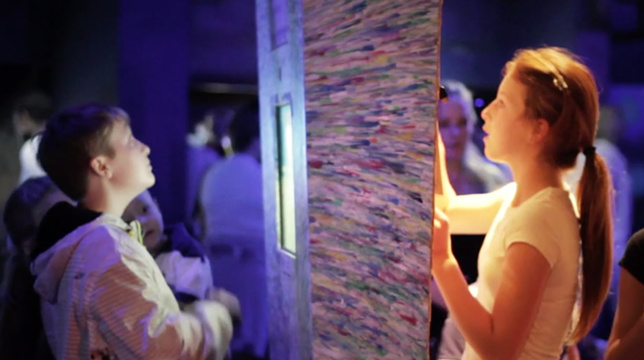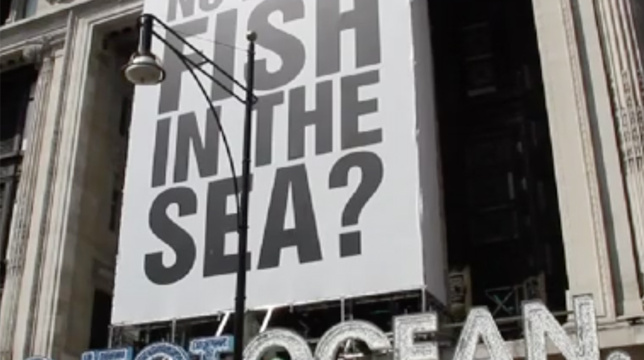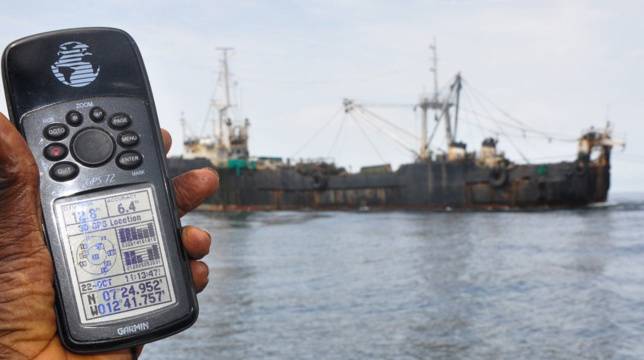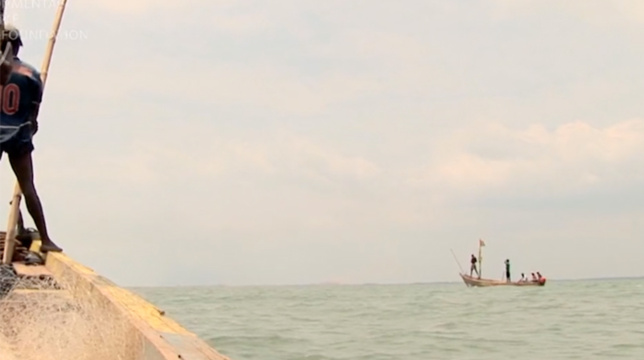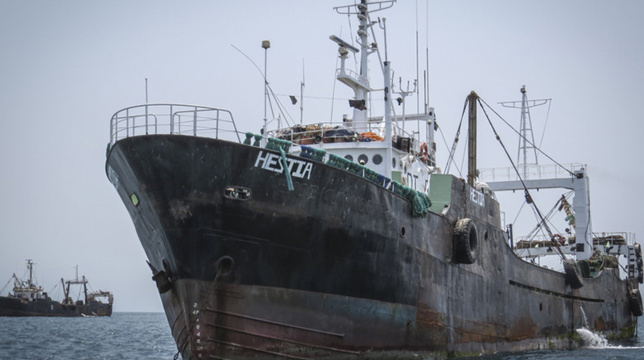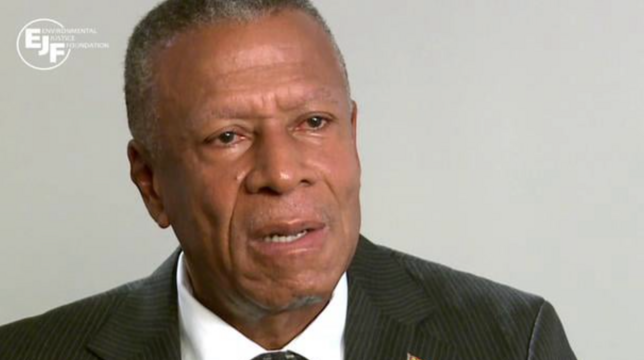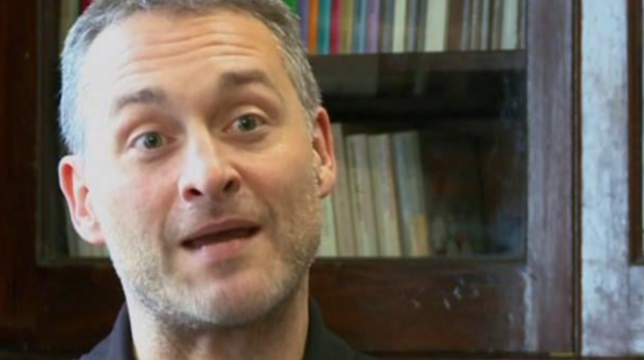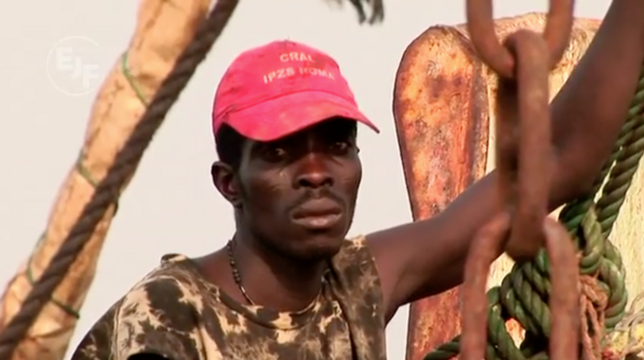Films
Message in a Bottle
What do you think should be done to Save the Sea? Visit the London Aquarium at the London Zoo and leave your message in our bottle.
EJF's 'What's the Catch?' at Project Ocean Selfridges 2011
EJF's 'What's the Catch?' at Project Ocean Selfridges 2011.
Pirate Fishing: What's the Catch?
This short film explains the impacts of illegal fishing in West Africa and beyond: depletion of fish stocks, destroying marine ecosystems, and jeopardising the livelihoods of local communities.
Illegal, Unreported and Unregulated (IUU) fishing, otherwise known as pirate fishing, depletes fish stocks, destroys the sensitive marine ecosystems, puts legitimate fishers at an unfair disadvantage and jeopardises the livelihoods of some of the world’s poorest people.
With thanks to the sound studio 4AM Productions.
All At Sea
An EJF film that exposes the abuse of human rights on illegal fishing vessels.
Illegal, Unreported and Unregulated (IUU) fishing, or pirate fishing, has been recognised as one of the major threats to the world's fish stocks. However, the focus so far has mostly been on the impacts on marine life and on local fishing communities. While these problems are extremely serious, there's one more that is rarely reported: human rights violations. Escaping regulatory checks on their catches, IUU vessel operators frequently get away with seriously abusing the human rights of their crews.
In this film, we look at the conditions in which people on board vessels that engage in pirate fishing live and work.
All at Sea was screened at the 13th UN Association Film Festival in 2010.
Soundtrack by Tom Strang.
With thanks to the sound studio 4AM Productions.
Pair Trawling: Frontline View
The first video produced by EJF's Sierra Leonean staff who campaign against the lift of the ban on pair trawling, a method of fishing that severely damages marine environments.
Pair trawling - where two boats tow one massive net - is an indiscriminate fishing method, highly destructive to the ocean floor and marine life. Many endangered species, such as sea turtles and seahorses, are caught in the nets and then discarded of as by-catch. Dropped back to the sea dead or dying, they become yet another sad statistic related to pirate fishing.
After their training in camera and editing techniques, EJF staff in Sierra Leone produced their first video in June 2012. This short film on pair trawling in Sierra Leone was broadcast on national TV.
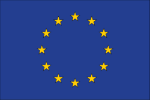
Supported by the European Union
Grenada and Climate Change: A Prime Minister's Perspective
EJF interviews Tillman Thomas, the Prime Minister of Grenada, about the impacts of climate change that are already being felt in Grenada, and the commitments that countries should make to lower their carbon emissions.
A Philosopher's Thoughts
In this short clip, EJF interviews Dr James Garvey, author and philosopher at the Royal Institute of Philosophy and editor of The Philosophers' Magazine, on the meaning and importance of a "home", and the human impacts of climate change.
This video is part of a series of interviews with philosophers, scientists, heads of state, and academics on migration and climate change, curated and produced for the Hay Festival Maldives 2010.
All At Sea (Short Version)
Illegal, Unreported and Unregulated (IUU) fishing, or pirate fishing, has been recognised as one of the major threats to the world's fish stocks. However, the focus so far has mostly been on the impacts on marine life and on local fishing communities. While these problems are extremely serious, there's one more that is rarely reported: human rights violations. Escaping regulatory checks on their catches, IUU vessel operators frequently get away with seriously abusing the human rights of their crews. In this film, we look at the conditions in which people on board vessels that engage in pirate fishing live and work.
All at Sea was screened at the 13th UN Association Film Festival in 2010.
Soundtrack by Tom Strang.
With thanks to the sound studio 4AM Productions.
